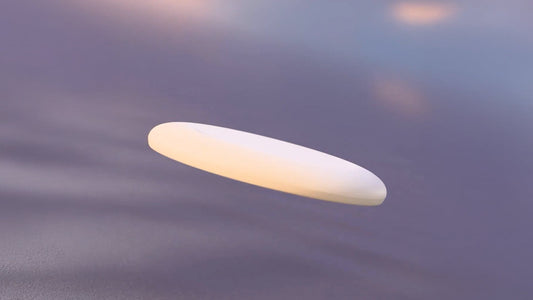2022 was a big year for Balena, as we shared our vision for a more prosperous and sustainable future with the world through the launch of our BioCir material. The first fully flexible and compostable thermoplastic in the world. Sustainability entrepreneur, Founder and CEO, David Roubach shared some insight into where the Balena journey all began, circularity, and what's in store for the company's future.
Can you share some background into how Balena started and what intrigued you to get into the world of circularity?
“It all started back in 2016 during my travels, in which I spent some time in a small village in Nepal, and most importantly where I was first introduced to the concept of circularity and end-of-life. The program on which I was travelling, did many group talks and discussions but it was the one discussion around the Western world’s contribution to waste and pollution that caught my attention. This discussion sparked my interest in understanding the challenges that different industries face when it comes to plastic pollution and the severe damage it causes to both the environment and the ocean. This is where my circularity journey began. I spent years researching and networking with industry experts to understand how we can transform our economy by rethinking and redesigning products so that they can reach their end-of-life responsibly without damaging the earth and seas. Through this research into plastics and plastic alternatives, it quickly became evident to me that Biodegradable polymers already existing in the market were not advanced enough to include the features that conventional and polluting plastic materials include such as durability, flexibility, high performance and softness, and so Balena was born”.
Why did Balena choose to start off in the fashion industry?
“Fashion and clothing are a fundamental part of everyday life and a very important sector in the global economy. The fashion industry is one of the most polluting industries in the world, with 60% of fashion garments being made out of plastic and over 21 billion pounds worth of garments being sent to landfills or being burnt every year in the US alone. Incorporating plastic such as PU, EVA and PVC into clothing becomes a core environmental issue that will affect our planet in the near and far future. This is the reason we have started off with targeting the fashion industry, as there isn't a circular, end-of-life solution that can close the loop for these garments and solve the pollution and damage caused to the earth and oceans”.
What do you believe the biggest trend in circularity will be in 2023?
“I think the biggest trend centred around circularity will be the shift in consumer mindset. Consumers are becoming more aware of the plastic crises and demanding more transparency and durable solutions. Consumers value high quality, durable products but have a lack of information which prevents them from making the best choices. While a few years ago you could position yourself as a sustainable brand just by using organic cotton, consumers are now expecting more”.
Where do you see Balena 5 years from now?
“We are working towards becoming a leading material science company in bio-material solutions. We have started with the development of sustainable solutions to TPU, and in the future aim to have a biodegradable and biobased solution to many conventional and polluting plastic in the industry”.
What would your advice be to other companies who want to create a better future for our planet? What do you think are the key elements required for a successful transition to a circular model for business?
“The starting point for anyone looking to make a positive change is to stop, to re-think and re-build. We need to break the assumptions we have surrounding sustainability and look at things in a new regenerative way. It's time to ask ourselves the tough questions and to re-evaluate the current system not just over the short-term but with a sustainable long-term plan in mind. Businesses often struggle to change their existing linear business models to circular models because the steps required for sustainable transformation are still poorly understood. Balena is bringing a new regenerative solution that has yet to be seen”.
Our team at Balena are looking forward to this next stage and are open to new opportunities and solutions. Get in touch with us, and let's take the steps towards a more circular economy together.
 "
"


